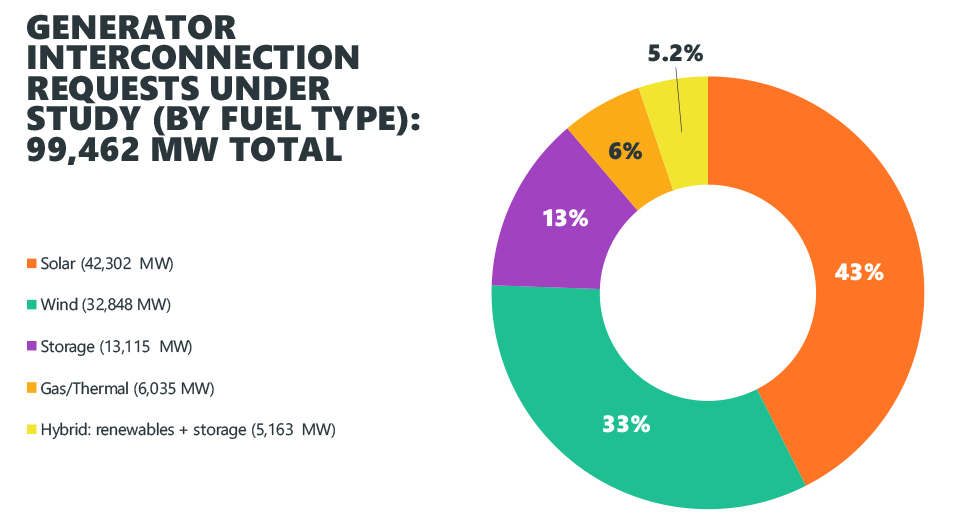
[EDITOR’S NOTE: A previous version of this story incorrectly said the two cooperatives alleging SPP “misapplied” tariff provisions requested that the “grid operator be assessed $2.2 million in reliability unit commitment penalties.” The sentence now correctly reads, “The cooperatives also requested the grid operator assess them $2.2 million in reliability unit commitment penalties.”]
FERC last week denied a complaint by a pair of electricity cooperatives that SPP “misapplied” tariff provisions by de-committing their generation resources that went on outage during last February’s extreme weather event (EL21-90).
The commission ruled Thursday that Basin Electric Power Cooperative and North Iowa Municipal Electric Cooperative Association (NIMECA) had not met the Section 206 requirement proving that SPP violated its tariff.
Basin and NIMECA filed their complaint in July, asking the commission to direct SPP to refund them $79.3 million in revenue they claimed they would have received if the RTO had abided by its tariff terms. The cooperatives also requested the grid operator assess them $2.2 million in reliability unit commitment penalties.
The co-ops asserted SPP was in violation because it de-committed several of their resources that were committed through its multiday reliability assessment (MDRA) process for reasons other than addressing an emergency condition.
The commissioners pointed out that the outage resources were issued commitment instructions as part of the MDRA, but the cooperatives reported that the resources were on outage through SPP’s outage scheduler. The RTO reflected the outage status as an input to the day-ahead market.
“The fact that the outage resources were not awarded positions in the day-ahead market does not amount to SPP de-committing” them, FERC said. The commission said because SPP correctly included the resources’ status as a day-ahead input, the resources were unable to be awarded positions in the market, even if the RTO had previously sent commitment instructions for the resources resulting from the MDRA.
FERC also agreed with the grid operator that its tariff requirements to reflect resource outages as inputs to the day-ahead market, day-ahead RUC and intra-day RUC do not depend on whether the resources were previously committed as part of the MDRA as long lead-time resources or during conservative operations.
GI Backlog Plan Approved
The commission on Jan. 14 also accepted SPP’s tariff revisions modifying its generator interconnection procedures to mitigate the backlog in its GI study queue. It directed the RTO to make an informational filing within 30 days after a transitional open-season cluster’s window closes (ER22-253).
FERC said it expected SPP’s process changes “will help expedite the process and give SPP the opportunity to reduce its interconnection queue backlog.”

The commission found that the RTO’s proposed deviations from FERC’s pro forma large generator interconnection procedures, permitted under the independent entity variation standard, met Order 2003’s intent to foster increased economic generation development by reducing interconnection costs and time “and encouraging needed investment in generator and transmission infrastructure.”
“We find that SPP’s proposals … will allow SPP to complete studies more efficiently than under the current process,” the commissioners wrote. “SPP’s proposed transition plan … allows SPP to manage the interconnection study queue while it addresses the backlog.”
The tariff revisions are the result of the Strategic and Creative Re-engineering of Integrated Planning Team’s work to resolve a five-year backlog of GI requests by 2024. SPP staff said the backlog dates back to 2017 and is comprised of 533 interconnection requests and almost 100 GW of capacity, most of it for wind and solar generation. (See “Renewable Developers Applaud SPP’s Plan to Reduce GI Queue’s Backlog,” SPP Markets and Operations Policy Committee Briefs: July 12-13, 2021.)
SPP staff are currently working on the oldest two study clusters.



